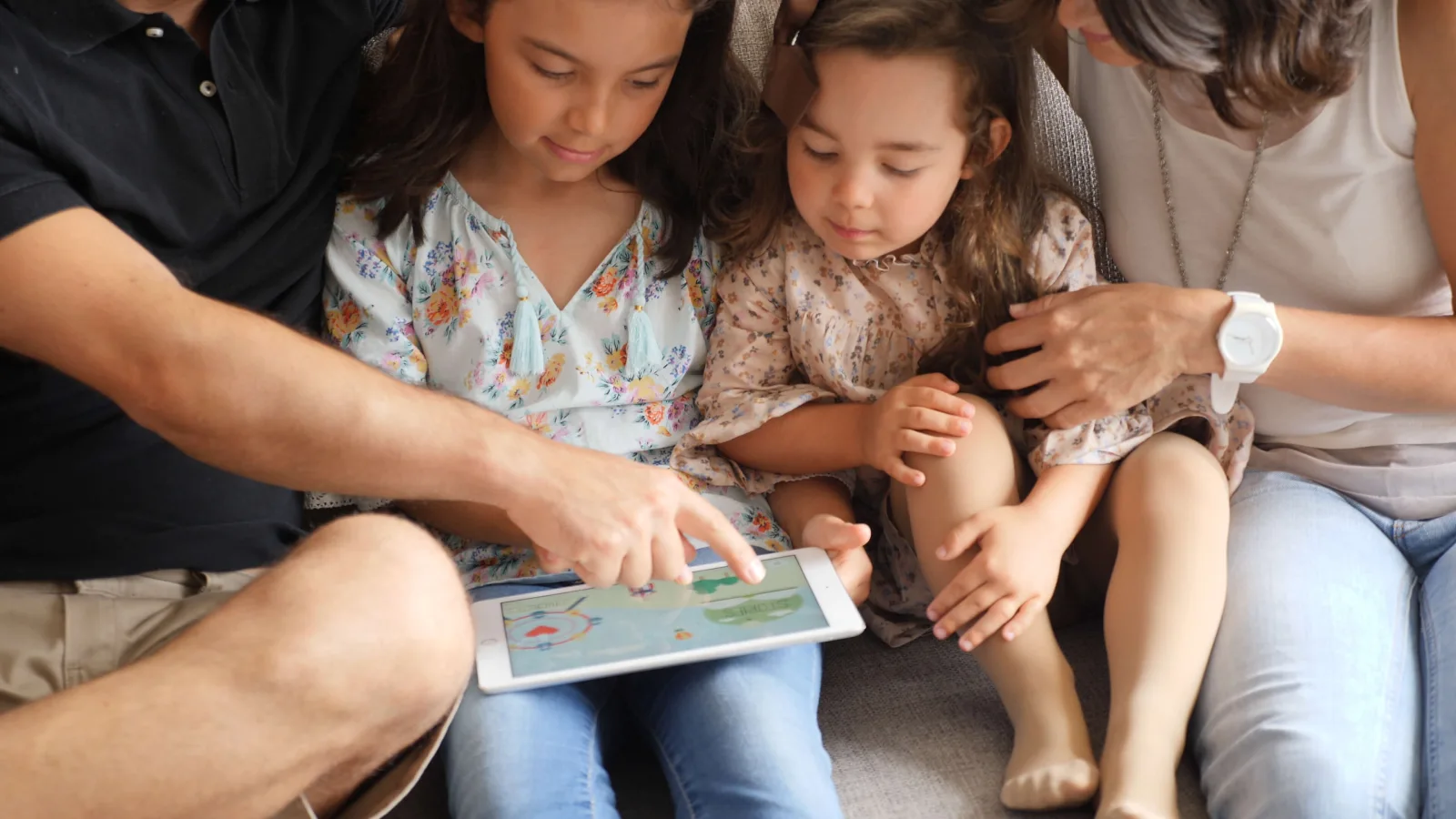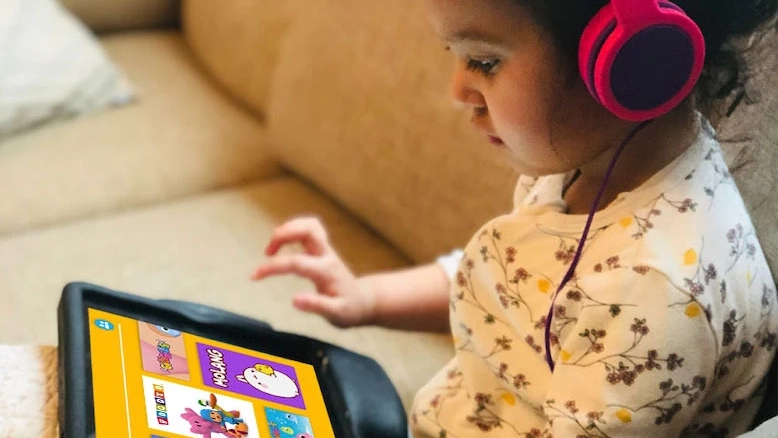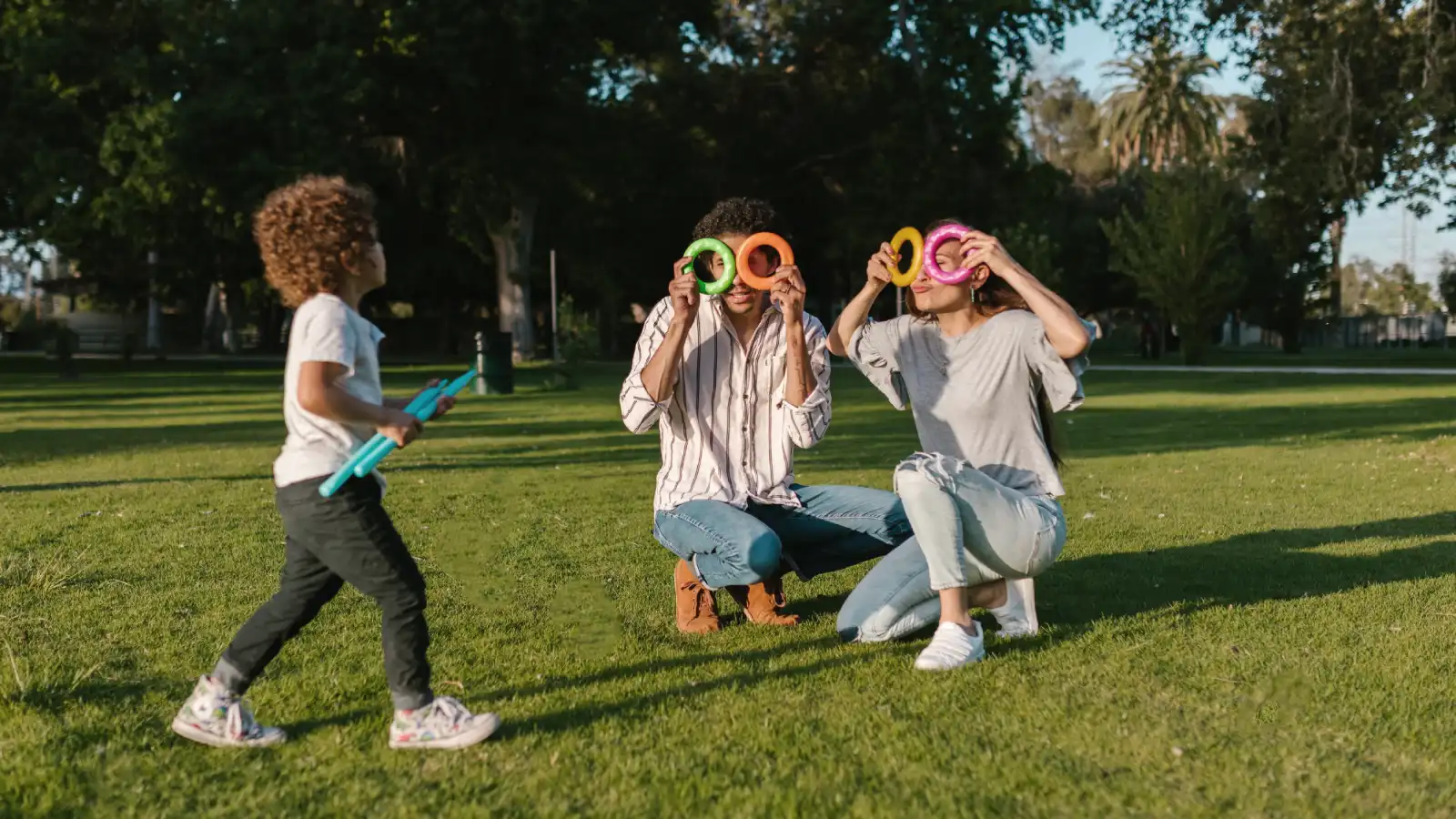Keeping your kids safe wherever they go is a priority for every parent – and that includes keeping them safe online. This can seem like a daunting task. But with 48% of children under the age of eight owning a mobile device and the average amount of time spent on screens each day increasing, it is an essential challenge to meet!
As we all know, the Internet can be a dangerous place, and with such widespread access, it is up to parents to keep their children safe online. Fortunately, there are several steps you can take to help keep your kids safe online.
Here are our top recommendations for keeping your kids safe online!
5 Strategies to Keep Your Children Safe Online
1. Start the conversation about your child’s online safety as early as possible

As soon as your children are exposed to the Internet – which, of course, should be through a parent’s device and under supervision – start the conversation with them about online safety.
You can explain the need to be careful when using Internet-connected devices in the same way you teach them to be careful when crossing the street in real life.
Start with simple safety concepts – like not talking to strangers, just like in real life – and you can move on to the trickier stuff as they get older.
And right from the start, talk to your child about the possibility of finding something upsetting, scary, or disturbing online. Encourage them to talk to you about it. You might say something like, “Sometimes you might see videos or websites that are upsetting or scary. It’s okay to tell me if you see something that makes you feel scared or sad.
At a young age, it’s very important to make sure that screen time happens with an adult present and with safe apps. Stress the importance of asking permission before using any device and the need to share screen time with you. Make screen time a fun time together and you can be sure your child will always ask you to be there. That way, you can monitor their online activities and make sure they’re navigating the digital world safely and responsibly.
2. Keep the conversation open and understand what your kids are doing – and why!

As your kids become more independent with their devices, sit down with them often to discuss e-safety. Listen to them!
Let them explain what they are doing so you can understand their point of view and motives. Articulating what they are up to will also help children think more carefully about their actions online.
Entering their world will allow you to handle any risky behavior in a non-confrontational and constructive way – which leads nicely into the next tip.
3. Don’t simply forbid your children to do things you don’t like

Banning things you do not like is not always the best solution. In fact, it can often make it even more tempting for a child to explore the forbidden fruit!
Instead, you need to help your son or daughter understand why a certain behavior or website makes you uncomfortable.
This will help you build a relationship based on trust rather than fear. Make sure they know that when they’re old enough, they’ll be able to use the Internet as they please, but that it’s your job as a parent to make sure they stay safe online.
4. Know what apps your kids are using – and choose wisely

As mentioned in point 2, it is important to listen to and learn from your children about how they use their devices and the Internet.
You and your child can decide together what applications they have access to. Of course, your job as a responsible parent is to make sure those decisions are wise.
This can be challenging because kids will naturally want to use certain apps – social media, for example – before they are ready. Again, your trusting relationship about the Internet and devices is key.
Fortunately, there are plenty of safe apps for all kinds of things and all ages. KidsBeeTV is a great example. It has won several awards for its commitment to providing a safe, educational, and engaging learning platform for toddlers and preschoolers. High-quality videos, educational games and activities, and parental controls are all designed to support early childhood development.
5. Spend time together offline!

It may sound obvious, but it is still a crucial piece of advice: spend time offline with your kids. Play board games, go to the park, or bake a cake together. There are thousands of 100% offline activities you can enjoy with your kids.
These activities are good for your kids – and good for you! Even light exercise, like a gentle bike ride, is great for your health.
Meanwhile, teaching your child to enjoy real-life activities from an early age will help them understand the need to balance time spent in the online and offline worlds. Plus, they’ll discover wholesome, healthy hobbies they can enjoy for a lifetime!
Expert Advice on Keeping Kids Safe Online
There you have it! Our top five tips for keeping your kids safe online. Stay safe, guys!
In addition, and to give you more information on keeping kids safe online, you can take a look at this amazing article from Porch – Expert Advice to Keep Kids Safe Online, where several technology creators share tips and thoughts on the topic, such as how to recognize safety and privacy risks when exploring new apps.





